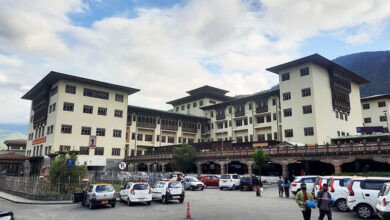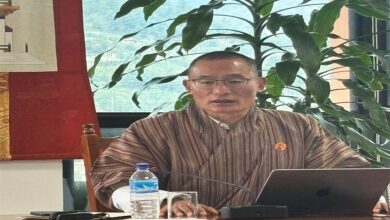Digital economy to contribute USD 600 million to GDP by 2034

By Sherab Lhamo
Thimphu: The digital economy of the country is expected to create 5,000 jobs by 2029 and contribute USD 600 million to Gross Domestic Product (GDP) by 2034, constituting 6 percent of GDP.
This ambitious target is outlined in the National Digital Strategy (NDS) launched on July 12.
The ‘Intelligent Bhutan’ vision of NDS focuses on three key pillars – digital economy, digital society, and digital governance.
Prime Minister Tshering Tobgay wrote on his Facebook page that NDS will serve as a comprehensive roadmap for digital transformation, geared towards boosting economic growth and enhancing efficiency in public service delivery.
A total budget of Nu 10 billion is allocated for digital transformation in the 13th Plan, of which Nu 1,698 million is allocated for digital economy, Nu 5,148.19 million to strengthen digital governance, Nu 610.65 million for digital society, and Nu 2,542.34 million for enablers, which include digital infrastructure, strengthening cybersecurity, and research and development, among others.
The digital economy aims to contribute USD 300 million to GDP by 2029 and USD 600 million by 2034.
According to the strategy, this will be achieved through three key strategies – digitalising industries, strengthening digital ecosystem, and accelerating the growth of the ICT industry.
Eight potential sectors have been identified for digitalisation, with key focus in automating commercial harvesting for wood based industry, facilitating end-to-end licensing and trade service as part of the National Single Window project, and consolidating the national resource mapping and inventory of Bhutan. Other key areas include sustainable agriculture and livestock tech for commercial farming, using digital technologies such as personalised experience and virtual tours, sustainable, smart and resilient transport system and data ecosystem for health, agriculture and climate.
Strengthening the digital ecosystem involves creating an environment that supports the growth and development of digital businesses, innovation, and entrepreneurship to drive digital economy. This also includes development of e-commerce, digital payment solutions, and digital platform for global market access, which are critical for the success of the digital economy.
The strategy aims to accelerate the growth of the ICT industry by strengthening the ecosystem for tech startups, funding models and tech jobs, and establishing 100 acres IT park in the country.
The priority areas also include formation of enterprises to drive the ICT business in the global market, strengthen industry academia linkage, and promote entrepreneurs in data centre services or cloud services.
While GovTech Agency will lead the implementation of the NDS, multiple agencies will be involved. For each strategy, different implementing partners and supporting partners are identified.
Meanwhile, Bhutan’s eGovernment Development Index by the United Nations ranking has improved from 152nd to 115th in the last 10 years due to the rapid adoption of e-government initiatives through government-to-citizen services.




